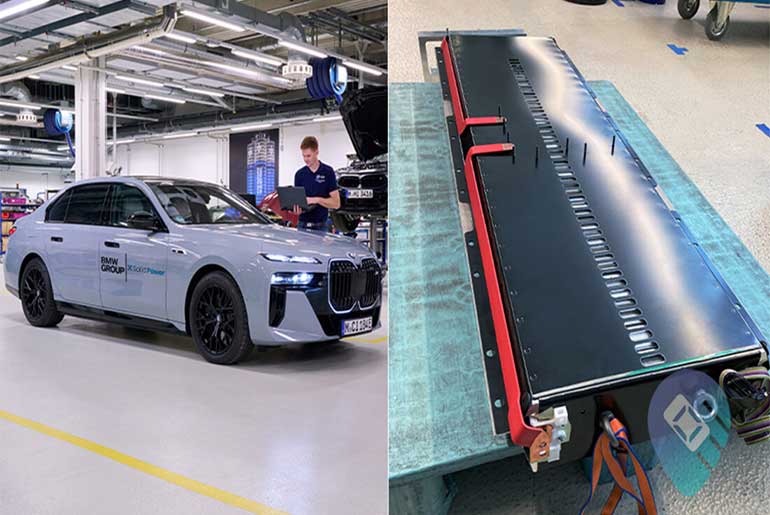Now, the first BMW EVs with all-solid-state batteries are being tested on the road. BMW promised a longer driving range at a lesser cost by testing the “holy grail” of EV battery technology with an i7.
BMW tests first EVs with all-solid-state batteries
After completing its initial on-road testing with Solid Power’s all-solid-state battery (ASSB) cells on Monday, BMW achieved a significant milestone.
ASSBs, sometimes referred to as the “holy grail” of EV battery technology, are expected to have a substantially better energy density than existing batteries. All-solid-state batteries offer the potential to increase driving range at a lower cost since they can fit more energy density into a smaller package.
The i7 test car uses innovative prismatic cells in modules and is based on BMW’s current Gen 5 architecture. BMW used new module concepts to modify the platform in order to accommodate Solid Power’s ASSB cells.
Since 2022, Solid Power and BMW have collaborated to develop the next EV battery technology. BMW announced in December 2022 that it would license Solid Power’s technology for a new solid cell prototype line at its Parsdorf-based Cell Manufacturing Competence Centre (CMCC).
Over the coming months, the German manufacturer will keep testing solid-state battery packs with sulphide-based electrolytes.
BMW comes after Mercedes-Benz, which declared in February that it had partnered with US-based Factorial Energy to put “the first car powered by a lithium-metal solid-state battery on the road.”
Solid-state batteries were installed in a modified Mercedes EQS. Factorial hopes to increase driving range by more than 600 miles while reducing weight by 40% when compared to existing Li-ion batteries.
The achievement also follows remarks made by Martin Schuster, vice president of next-generation battery technology at BMW Group, to Autocar in February that existing lithium-ion batteries have “a long way to go” and that solid-state batteries were still too costly.
The exciting new battery technology is not just being advanced by German automakers. Over the coming years, EVs with all-solid-state batteries are also anticipated to be introduced by global battery leaders CATL and BYD.
Earlier this year, Sun Huajun, the CTO of BYD’s battery division (Shenzhen BYD Lithium Battery Co.), stated that the company anticipates the arrival of its first electric vehicles (EVs) equipped with all-solid-state batteries in 2027. BYD anticipates that ASSBs will reach the mass market by 2030; however, production will be restricted for the first two years.
Some of BYD’s higher-end models will first employ a sulphide-based solution. According to reports, CATL, like BYD, intends to start producing all-solid-state EV batteries in 2027, albeit in modest amounts.
The next generation of EV batteries is being developed by a number of other companies, including Hyundai, Nissan, Stellantis, Toyota, and Honda.
Which will be the first to introduce mass-produced all-solid-state EV batteries? The market is now dominated by CATL and BYD, but other companies are making rapid progress through on-road testing. Please share your opinions in the comments section.

